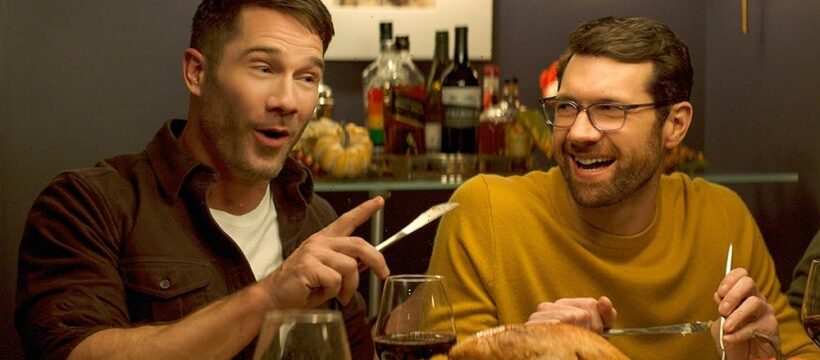Billy Eichner’s “Bros” made history as the first gay rom-com to be given a wide theatrical release by a major studio, as well as the first with an all-openly LGBTQ cast. From the nightclub where Eichner’s Bobby meets and falls in love with Luke McFarlane’s buff Aaron, to the LGBTQ+ Museum grand opening, the Big Apple love story features several amazing sets — as well as a carefully curated DVD shelf.
While production for “Bros” was originally meant to take place in Buffalo, N.Y, the pandemic thwarted plans, and with a new tax credit incentive, New Jersey became the stand-in for the rom-com (with a few scenes shot on the streets of New York and Provincetown). Sitting down with Variety, writer-director Nicholas Stoller and production designer Lisa Myers share insight into the film’s key sets.
Bobby’s Apartment

Myers: “We researched what someone of his age that lives in New York with his background and space would live in. We knew we would spend a lot of time there. It was important to us that we create a space that had a lot of depth where you could see into the different rooms. All the artwork had meaning. It’s all LGBTQ artists. The books and DVDs were curated.”

Stoller: “It feels like that guy could afford to live there. It doesn’t feel like a crazy idea, and it’s nice. Our cinematographer Brandon Trost kept asking, ‘Are we going to shoot another scene of him sitting on the couch?’ It’s a New York apartment, all you do is sit on your couch. For that, we chose a beautiful muted gray-blue, and that palette was masculine but elegant.”
Myers: “For the Thanksgiving scene, it’s obvious it’s not a huge apartment with a huge table. We had this table that you could turn and extend for when you have guests, and those were details we got into.”
The LGBTQ+ Museum

Stoller: “The museum needed to feel like a real museum. It becomes ridiculous in the end, but the exhibits needed to feel real. Our location manager and Lisa found the Newark Museum of Art, so we used that for the front of the building and for almost all the museum spaces inside. At the very end when they walk down the street, that’s Central Park West. The museum was really collaborative with us. They let us do what we needed to do which was to build this beautiful LGBTQ museum that needed to feel like there were big stakes and that it’s a big museum.”
Myers: “We had four historians working with us so that in the museum, even all the little blurbs are accurate and real. It just didn’t feel right to have Lorem Ipsum when you’re representing all of these amazing historical figures in a world where notoriously queer histories are erased. We also had space so that it would logistically work with us. They were able to give us entire floors so we could go from the Lincoln exhibit to the Legends Pavilion.”
The Nightclub

Myers: “When we were looking, we were looking to find a space with two levels because it made sense for the blocking when Bobby and Aaron see one another for the first time. It was the White Eagle Music Hall in Jersey City. Billy wanted to make sure it felt real. It wouldn’t be something glossy that you would expect to find in Manhattan, but more like a place he’d have to go deep into Brooklyn to get to.”
Read More About:
Source: Read Full Article
